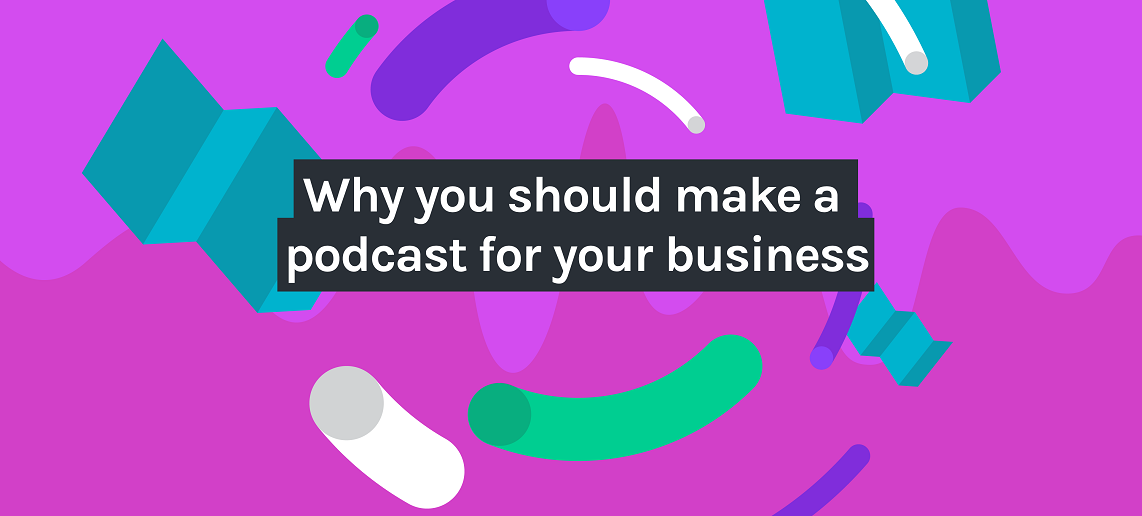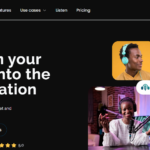If you have a new business, you are probably looking for innovative ways to connect with your target audience; well, podcasting could be it! Millions of people listen to podcasts in Nigeria and Africa as a whole.
Podcasts present a valuable opportunity to engage with your target audience directly. They also provide a scalable platform for businesses to showcase expertise. By sharing your insights and knowledge, you can reach a larger audience than one-on-one consultations will allow. This approach enables interested individuals to connect with your business on their terms, fostering a deeper understanding of your services.
Before we tell you how to do this, we have a few more in-depth reasons why you should. Let’s dive in.
Customer churn is costly, and customer lifetime value is high
Podcasts are a valuable asset if you can identify your target audience. A common misconception has people thinking that podcast listeners are older. You know who consumes the most podcast content? Gen Z!
While a podcast may not be the primary lead generator, you can reach a younger audience while avoiding TikTok and build a following that can result in well-prepared prospects and clients. This means less hand-holding during onboarding and accelerating the relationship-building process.
Sure, launching and maintaining a podcast may seem daunting
You just started a business; you don’t have time to run a podcast! Well, a podcast can be simple! As a host, your primary responsibility is to show up and talk.
Tasks such as booking guests, creating an episode outline, editing, publishing, and promotion can be done on Wokpa for instance. This flexibility accommodates the busiest of schedules, allowing businesses to leverage the power of podcasting without overwhelming their resources.
Save your marketing budget
Contrary to the belief that effective marketing requires a hefty budget, podcasting offers a cost-effective alternative. Businesses can establish a podcast with a modest microphone investment and hosting services. Just remember to check to see how you are going in the eyes of your followers in order to adjust your content, your tone, and your strategy.
Plus, you can use the content you create across multiple platforms! For example, if you offer leadership tips on your podcast, you can repurpose these on your website to maximize its reach and the website’s topical authority! Smart, right?
Podcasting isn’t just about outreach and education
Podcasting can also be a lucrative venture. Successful podcasts have generated substantial revenues and served as a platform for innovative sales strategies. Podcasts can also become a source of revenue through sponsorships, further contributing to the overall profitability of the venture.
How to start a podcast: A quick guide
If you’re all-in on the idea of starting a podcast but unsure where to begin, fear not. Follow these steps, and you’ll be on your way to launching a successful podcast:
1. Define your niche
This should be pretty easy as it needs to relate to your business, but balancing specificity and broad appeal is essential. Research existing podcasts to understand the landscape and find your unique angle. Use an online voting tool to learn about your potential audience’s preferences, interests, and problems they face to guide your content creation
2. Build your brand and online presence
Choose a podcast name that is both relevant and memorable, steering clear of the generic term “Podcast.” Aim for a succinct name, ideally under 29 characters, to ensure it’s easy to recall and recognize. Invest in high-quality, engaging cover art and unique audio elements to cultivate a professional and appealing brand image. Consider hiring a graphic designer for a distinct and personalized touch.
Create an RSS feed on your business website for your podcast to ensure its presence in major directories like Apple Podcasts, Spotify, and Google Podcasts, which aids in its discoverability. Feature your podcast prominently on your business’s social media profiles, and engage in targeted promotion on platforms where your audience is most active. Regularly refine your approach based on audience feedback to keep your content relevant and engaging. For more detailed strategies on building a brand, we highly recommend you to read this insightful guide on How to Build a Brand.
3. Source recording equipment and editing software
While basic recording can be done with existing devices, investing in a podcast microphone can significantly improve audio quality. Free editing software options like GarageBand and Audacity are suitable for beginners. Advanced users may opt for premium software like Adobe Audition or Logic Pro X. Alternatively, consider outsourcing editing to freelancers on platforms like Fiverr or Upwork.
In addition, you can use Wokpa – all in one tool to start your podcast journey.
4. Record and Edit Your First Podcast
Decide whether to script your episodes or speak off the cuff. Breaks, pauses, and re-recordings may be necessary for a polished final product. Give each episode a unique, descriptive title to aid discoverability and craft clear and concise descriptions for each episode. Include relevant links and information about what listeners can expect.
5. Upload and promote
Upload your podcast episodes to chosen directories to make them accessible to a wider audience. Start by sharing your podcast with friends and family. Consider creating a paid social media campaign or using various promotional strategies and leverage platforms like Instagram, Twitter, Facebook, and TikTok to connect with your audience. Utilize existing business accounts or create new ones dedicated to podcast promotion.
For some types of businesses, Twitter (now under the name of X) is the ideal social network to distribute a podcast. This is because of its structure and philosophy, which allows fast and effective reactions, comments, and interactions. To drive the best results, it’s important to know how to grow followers on Twitter and play with the right strategy in mind.
Business podcasting quick tips
— Know your niche: Before hitting that record button, make sure you know your stuff. What makes your business stand out? What’s your specialty? People can sniff out genuine passion from a mile away.
— Cook up a content calendar: Consistency is key in the podcasting realm. Whip up a dependable content calendar, whether weekly, bi-weekly, or monthly, and stick to a schedule so your audience knows when to tune in for the good stuff.
— Bring on the charm: Imagine you’re chatting with your buddy at the local pub. That’s the vibe you want. Be conversational, crack a joke, and let your personality shine. Your listeners should feel like they’re grabbing coffee with you, not sitting through a snooze-fest lecture.
— Guests spice up the pot: Invite interesting guests to join the party. It could be industry experts or satisfied customers; different voices bring different flavors!



